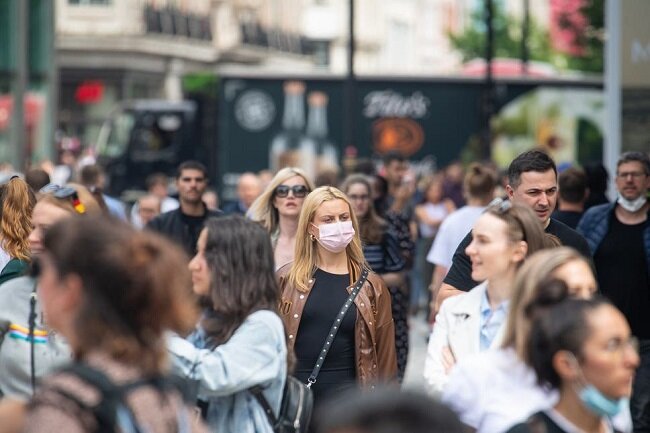COVID-19 Pandemic 2021 Part 9
Over the last year, the UK government has mishandled many aspects of the COVID-19 Pandemic. However, the ongoing national vaccination program is not one of them. Taking the initiative while the major pharmaceutical companies were still developing their vaccines, the UK government has ordered 407 million doses from multiple manufacturers. The aim is to vaccinate everyone aged 18 or over in the UK with one dose by the end of July. This does not include children until further research is carried out regarding safety. At present the Covid vaccine is not compulsory. Two vaccines, developed by Pfizer-BioNTech and Oxford-AstraZeneca, are currently being used in the UK. A third, from Moderna, has also been approved. All three have proven to be effective at preventing people from becoming seriously ill and dying from Covid-19. The Oxford vaccine offers protection against the “Kent” variant currently dominant in the UK. Early research suggests that the other brands do the same.
As of Thursday, 25th February 2021, 19,177,555 people in the UK have had their first dose of the vaccine. 736,037 have received their second. Studies in England and Scotland have found that within weeks of getting a first dose, the risk of being admitted to hospital falls by at least 75% for the over 80s. There is further evidence that vaccines can reduce the spread of the virus too. Health workers who were vaccinated with one dose reduced their risk of catching the infection by 70%, another study found. It should be noted that the approved vaccines require two doses to provide the best protection against the virus. To ensure a prompt roll-out, the UK's chief medical officers have suggested a 12 week gap between doses. This approach is now supported by the WHO which says giving two doses 8 to 12 weeks apart increases the Oxford vaccine's effectiveness and provides greater protection.
The reason I’ve taken such an interest in this matter is because on Tuesday, 23rd February, I received my first dose of the Pfizer-BioNTech vaccine. Because I am a carer to my disabled Mother, I received a text message from my local Doctor’s Surgery inviting me to book an appointment at my local Hospital. The clinic that has been set up there runs into the evening so I arranged an appointment for 6:50 PM. The entire process was very efficiently handled, with orderly queues, prompt handling of paperwork (you have to sign a consent form) and experienced Nurses handling the vaccination. After receiving the first dose you are required to sit and wait for 15 minutes to ensure you don’t have an adverse reaction. The entire process lasted no more than 45 minutes. The Hospital was also only thirty minutes walk from my home. I received a certificate the size of a business card that states the date and batch number of my first vaccination. It will be updated when I receive my second dose.
Because of my personal circumstances, I know of several people who have died of COVID-19. Before my Mother became immobile, I used to take her once a week to her hair salon. Many of the customers are of a senior age group and I found out recently that a couple known to my Mother died just before Christmas due to the virus. My Son works for Transport For London and due to the nature of the industry, many of his colleagues have caught COVID-19 and some have sadly died as a result. So for my family, this pandemic is not something that just seems to happen to other people. I was ill will COVID-19 last April and it was a thoroughly unpleasant experience. Hence the vaccine rollout throughout the UK is significant to myself and my family. Mrs P, my Mother and Sister are all in high risk categories due to underlying health conditions. Fortunately, to date, all have now had their first vaccinations. This has afforded us a great sense of relief and done much for our respective mental wellbeing.
Although the UK vaccination rollout is currently proceeding well, it must not be seen as a “get out of jail card” and an immediate solution to the pandemic. It is important to keep the existing protocols in place to keep infection rates low and prevent further spread of the virus, while the public is being immunised. It is also concerning that certain sections of the public are ambivalent about having the vaccine. As the grandson of a General Practitioner, I support science and am confident in the scientific method. But it is crass to be dismissive of other people’s fears and concerns. I hope that progress can be made to convince people to take the vaccine or else I fear that COVID-19 will linger as an illness of the poor and minorities. Something that will only create further division and unrest in the UK. In the meantime, I look forward to receiving my second vaccination and am cautiously optimistic that restrictions may be reduced by late Summer.










